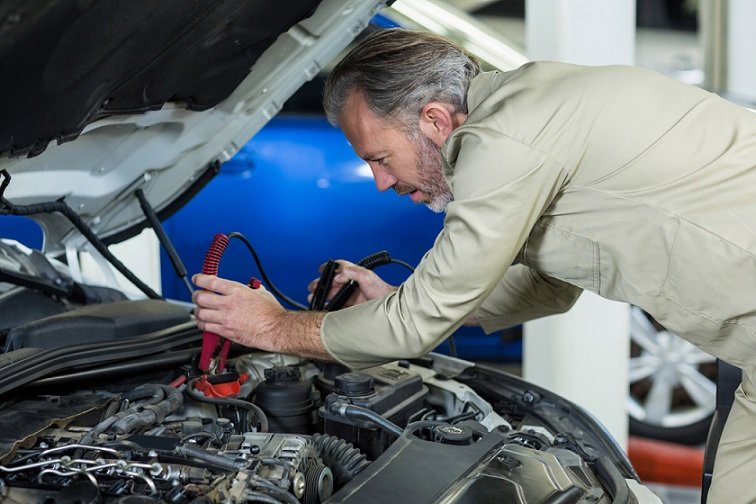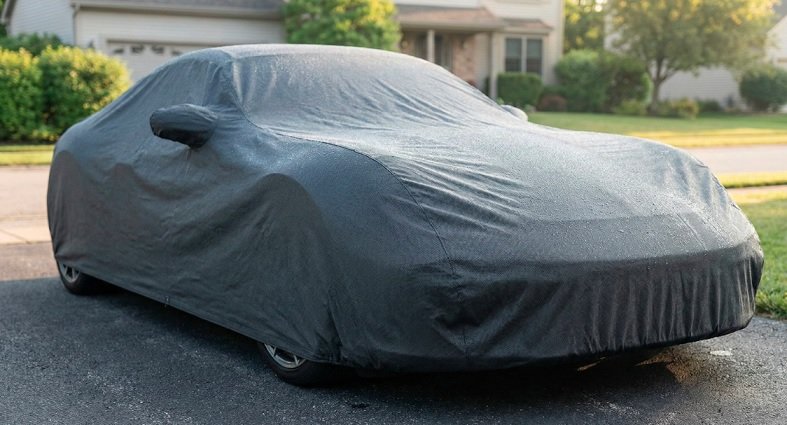Purchasing a used car can be a smart financial decision, but it comes with important responsibilities, especially in states like West Virginia, where vehicles must pass a safety check before being legally driven. Before finalizing a purchase, buyers should be aware of potential issues that could cause a car to fail the West Virginia state inspection. Overlooking even minor problems may lead to costly repairs or failed inspections that delay registration and driving privileges. This article outlines essential items every buyer should review ahead of the inspection to ensure their vehicle is roadworthy and compliant with state regulations.
Check the VIN for Inspection History
- Review the Car’s Past with a VIN Report: The Vehicle Identification Number (VIN) can reveal a detailed inspection history through services like Carfax or the National Motor Vehicle Title Information System. Buyers can check for red flags such as previous inspection failures, salvage titles, or recurring mechanical issues. This step provides an early warning for problems that might not be visible during a casual walkaround.
- Look for Patterns of Neglect or Inconsistent Repairs: If the report shows repeated failures for the same system, such as brakes, emissions, or lights, it could indicate ongoing neglect or improperly completed repairs. Knowing this allows buyers to assess whether the vehicle is worth pursuing or likely to rack up costs after purchase. A clean VIN report doesn’t guarantee perfection, but it gives a solid foundation for decision-making.
- Confirm the Vehicle’s Mileage Accuracy: Mileage discrepancies on the VIN report may suggest odometer tampering, which is not only illegal but could also affect the outcome of the inspection. West Virginia inspectors may flag inconsistencies that hint at mileage fraud or undocumented wear and tear.
- Check for Previous State Transfers: If the car has moved between multiple states recently, it may have been relocated to avoid stringent inspection laws. Be cautious of such cases, as this might mean the car failed an inspection elsewhere and was transferred to sidestep requirements.
Look for Frame Damage or Poor Repairs
- Inspect the Undercarriage for Signs of Damage: A bent or rusted frame can seriously affect a vehicle’s structural integrity, and any sign of impact damage can be a reason for failing a West Virginia state inspection. Prospective buyers should look for welding marks, ripples, or fresh undercoating that could be masking damage.
- Examine Panel Gaps and Door Alignment: Uneven panel gaps, doors that don’t close smoothly, or mismatched paint may suggest previous collision repairs that were not done to manufacturer standards. These cosmetic clues often indicate deeper structural issues that might compromise the car’s ability to pass inspection.
- Request a Professional Frame Assessment: If the car has been in an accident, even if repaired, have a qualified mechanic assess the frame for hidden damage. An inspector will fail the car if they believe it is unsafe due to weakened supports or poor alignment.
- Beware of Flood or Salvage Vehicles: Frame rust from flood damage can go unnoticed until the inspection. If a vehicle has a salvage title, double-check that all repairs were completed by certified technicians and are documented.
Evaluate the Exhaust System for Leaks or Modifications
- Listen for Loud or Unusual Engine Noise: An excessively loud exhaust is a common symptom of leaks or aftermarket modifications. During the West Virginia state inspection, any tampering with the muffler, catalytic converter, or emissions system can result in a failed test.
- Check for Rust, Corrosion, and Gaps: The exhaust system runs underneath the car and is especially prone to damage from salt, water, and rough terrain. Look for rust holes, separated joints, or black soot marks around pipe connections, which may indicate escaping gases.
- Verify Emissions Components Are Intact: Some used vehicles have had emissions systems removed or replaced to increase performance or due to neglect. Make sure components like the oxygen sensor and catalytic converter are present and functioning. West Virginia inspection standards include visual and functional checks for these systems.
- Test for Exhaust Odors Inside the Cabin: A leaking exhaust may emit fumes that seep into the vehicle’s interior, presenting a health hazard. If the cabin smells like gas or exhaust, that’s a serious concern that must be fixed before the vehicle is deemed roadworthy.
Assess the Dashboard for Warning Lights
- Look for Airbag and ABS Light Indicators: In West Virginia, dashboard warning lights related to critical systems like airbags or anti-lock brakes (ABS) automatically fail during the inspection. Even if the vehicle drives well, unresolved safety system errors signal potential malfunction.
- Check That the Check Engine Light Is Off: A lit check engine light could relate to a wide range of issues, from minor sensor problems to significant engine trouble. Inspectors will not pass a car with a check engine light on, regardless of how it performs during a test drive.
- Test That All Gauges and Lights Function: Ensure the fuel gauge, speedometer, oil pressure, and other dash indicators operate as they should. Non-functioning gauges may reflect broader electrical issues that affect both drivability and inspection status.
- Watch Out for Recently Reset Codes: A freshly cleared dashboard may indicate that the seller used a code reader to hide faults temporarily. If possible, run a diagnostic scan or ask for maintenance records to confirm that warning lights haven’t been masked or reset just before the sale.
Conclusion
Buying a used car in West Virginia involves more than just choosing the right model and price; it requires careful attention to detail, especially when preparing for the WV state vehicle inspection. From checking the VIN history to inspecting frame condition and verifying dashboard functionality, each step helps avoid unpleasant surprises. Overlooking any of these factors can lead to inspection failure, unexpected repair costs, or delayed registration. By doing thorough due diligence, buyers can ensure their investment is safe, reliable, and compliant with state laws. Whether it’s a first car or an upgrade, a well-prepared purchase leads to a smoother road ahead.



